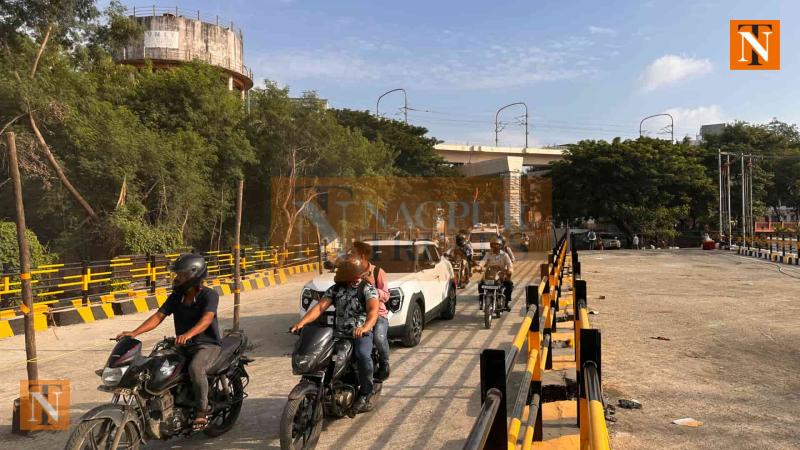Ambazari Bridge Set to Reopen for Citizens on October 11 Today

Nagpur, India: After months of waiting, the new bridge near the Ambazari overflow point will be opened to the public on October 11. According to a notification from the Traffic Branch, Nagpur City Police, the bridge will be accessible from 4 PM on Friday. Deputy Commissioner of Police (Traffic), Archit Chandak, stated that traffic will initially flow from Gajanan Maharaj Temple to Ambazari T-point, as that side of the bridge is complete, while work on the other side continues.
heavy vehicles like buses and trucks are prohibited from using the bridge. Additionally, a speed limit of 20 km/h has been imposed as a safety precaution due to simultaneous two-way traffic on a single portion of the bridge. This bridge opening is critical, as its absence forced commuters to take long detours to reach the other side of the Ambazari area.
Earlier, the administration provided a temporary solution by allowing one-way movement of two-wheelers through the VNIT campus road. However, the ongoing ban on heavy vehicles may be due to the narrow width of the bridge, which is currently equipped with railings to facilitate two-way movement for two-wheelers. Some residents have raised concerns over the exclusion of buses, which are vital for easing traffic flow on this important route.
DCP Chandak explained that the speed restriction is in place to prevent accidents. The current traffic arrangement is scheduled to remain until November 10, 2024, by which time the second portion of the bridge is expected to be completed.
The new bridge was constructed after demolishing the old one, which was too low and blocked water flow during overflow from the Ambazari lake. Following the devastating floods of September 23, 2023, city authorities recognized the need for a wider bridge opening to allow quick water discharge. As part of flood prevention efforts, the Naag River's channel has been widened from 9-12 meters to 18 meters and deepened to accommodate higher water volumes. These improvements were recommended by the Irrigation Department to prevent future floods, with most measures now completed, except for the reconstruction of the Naag River retaining wall.









-t-thumb.jpeg)